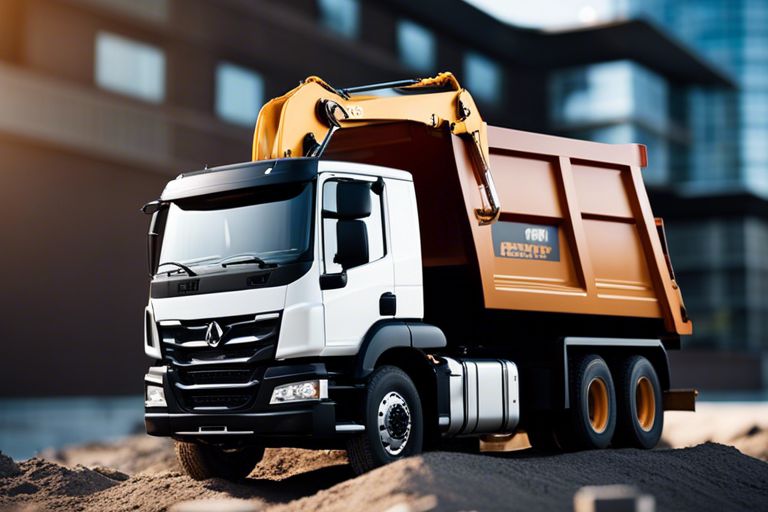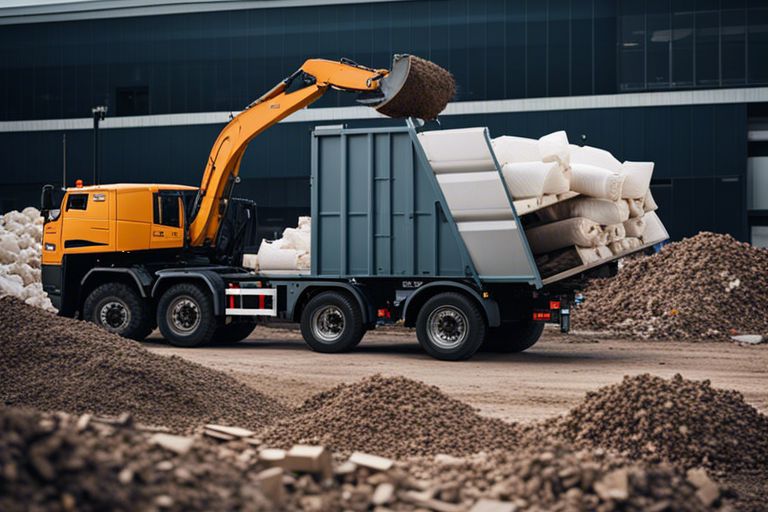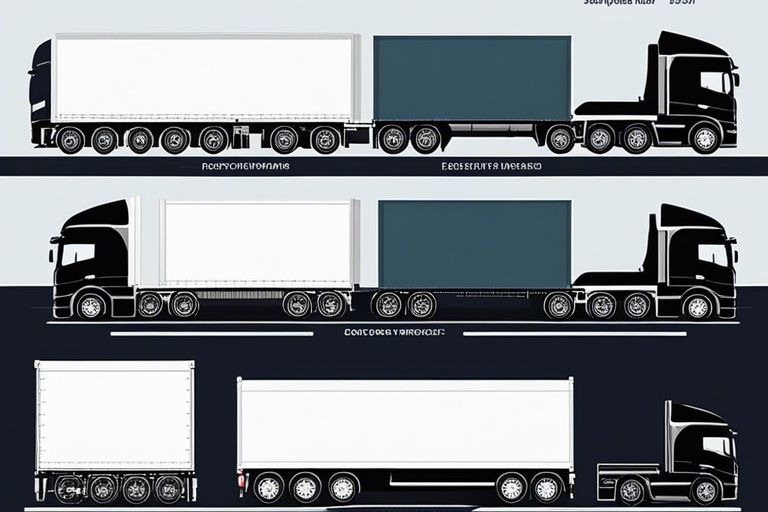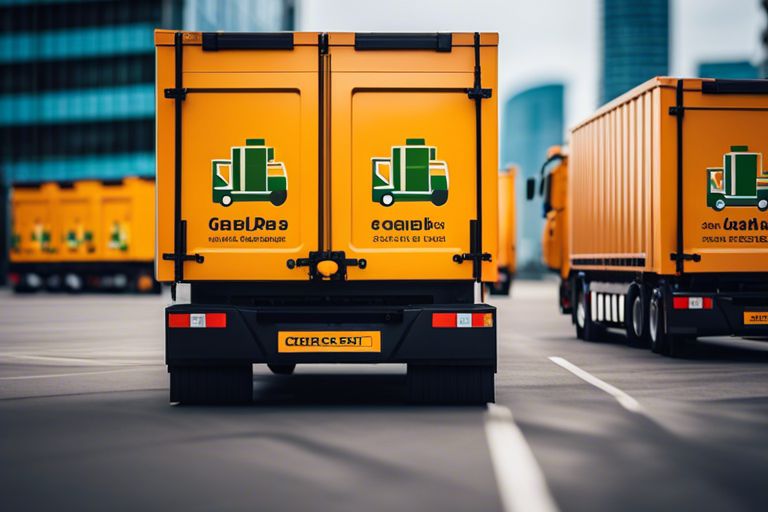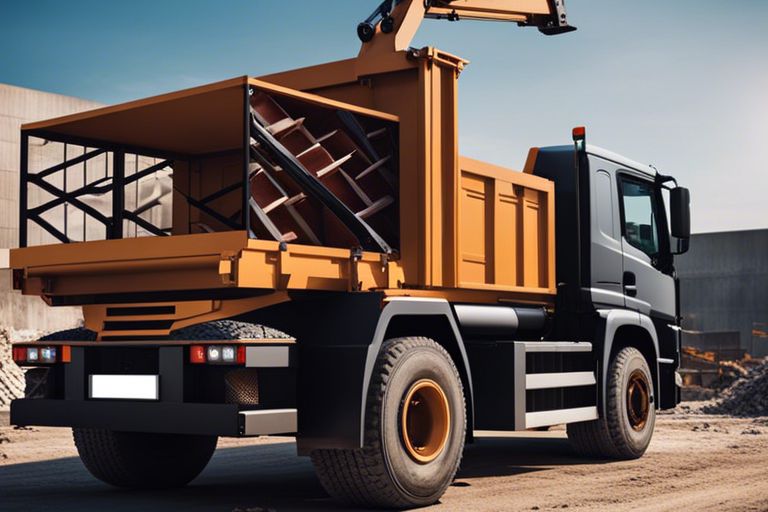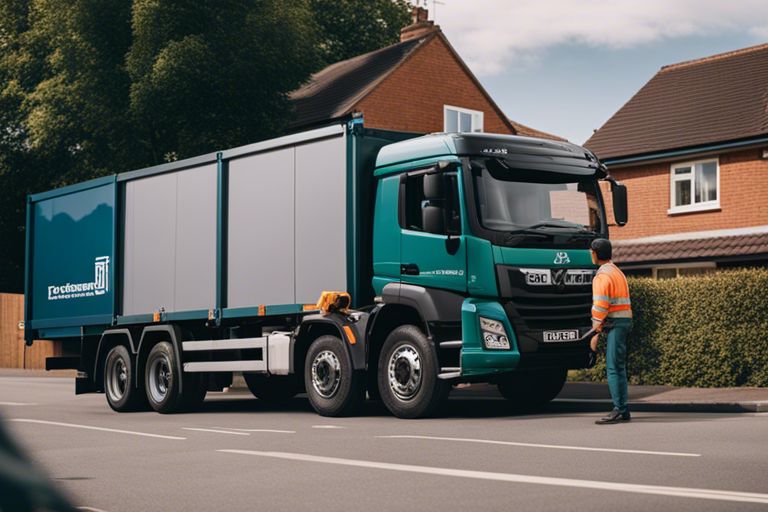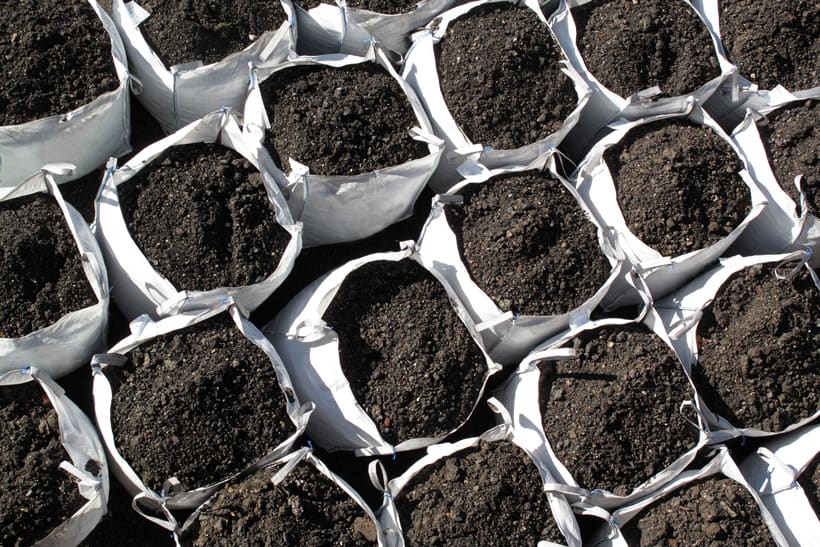If you’re in the market for a grab truck that can handle just about any type of waste, you’ve come to the right place. We have a wide range of grab trucks available, perfect for all sorts of jobs. From small residential pickups to large commercial deliveries, we can accommodate your needs. So if you’re looking to get your hands on a grab truck that can handle anything and everything, look no further than our team at Grab Truck Hire!
General waste
Most people are familiar with the standard garbage truck that comes to collect our trash cans on a weekly basis. But what about those larger projects where you have a lot of waste to get rid of? That’s where a grab truck comes in!
A grab truck, also known as a grabber truck or simply a grab, is a large vehicle that is equipped with a hydraulic arm and claw. This allows the operator of the grab to pick up large items, such as tree stumps or construction debris, and load them into the back of the truck. Grab trucks are often used for projects that generate a lot of waste, such as landscaping projects or home renovations.
If you have a project that will generate more waste than your regular garbage pickup can handle, then you may need to consider renting a grab truck. Here are some things to keep in mind when deciding if a grab truck is right for your project:
The type of waste you will be generating: Some types of waste, such as concrete or asphalt, are too heavy for regular garbage trucks. If your project will generate this type of waste, then you will need to rent a grab truck.
The amount of waste you will be generating: If your project will generate more than 15 cubic yards (11 m3) of waste, then you should consider renting a grab truck. This is because most garbage trucks can only hold up to 15 cubic yards (11 m3) at one time.
The distance from the dumpster to the curb: One advantage of using a grab truck over renting a dumpster is that there is no need to worry about the distance from the dumpster to the curb. This is because the hydraulic arm on a grab truck can reach over obstacles like parked cars and load the waste without any issues. However, if you only have a few items to dispose of and the dumpster is closeby then it might not be worth renting a grab truck just for this one project
Green waste
Whether you’re a commercial or domestic customer, chances are you’ll have some green waste that needs disposing of at some point. Green waste can include anything from garden clippings and leaves to tree branches and shrubbery. It’s important to dispose of green waste correctly, as it can quickly build up and become a nuisance if left unattended.
One of the best ways to get rid of green waste is to hire a grab truck. Grab trucks are specially designed vehicles that have a hydraulic arm attached to the back. This arm allows the driver to pick up large loads of green waste and deposit them in the truck’s holding area. Grab trucks are an efficient and cost-effective way to remove green waste, as they can hold large quantities in one trip.
If you’re not sure what type of grab truck is right for your needs, our team can help you choose the perfect one for your project. We also offer a range of other waste removal services, so we’re confident we can meet your needs no matter how big or small they may be!
Hard-core waste
There are four main types of waste that a grab truck can help you with: general waste, construction waste, green waste, and hard-core waste.
General Waste: General waste is the most common type of waste and includes items like food packaging, paper towels, and office supplies. Construction Waste: Construction waste is any type of debris that is generated from a construction project. This can include things like drywall, lumber, nails, and concrete. Green Waste: Green waste is any type of organic material that can be composted or recycled. This includes leaves, grass clippings, and tree branches. Hard-Core Waste: Hard-core waste is anything that cannot be recycled or composted. This includes things like asphalt shingles, bricks, and glass.
Soil waste
There are many types of soil waste, but the most common type is construction and demolition waste. This type of soil waste typically consists of concrete, bricks, glass, metal, and wood. Construction and demolition waste can be recycled or reused in many ways, such as using it as fill material for new construction projects.
Another type of soil waste is household hazardous waste. This type of soil waste includes items like cleaning products, paint, batteries, and pesticides. Household hazardous waste should be disposed of properly to prevent it from harming the environment or people.
Finally, there is medical waste. Medical Waste includes items like used needles and syringes, blood-soaked bandages, and body fluids. Medical Waste must be disposed of properly to prevent the spread of disease.
Recyclable waste
There are many benefits to recycling your waste, including reducing the amount of waste sent to landfills, conserving natural resources and saving energy. But what exactly can be recycled? We’ve put together a handy guide to help you sort your recyclables from your rubbish.
Here at Grab Truck, we’re all about making things easy for our customers. That’s why we offer a range of grab truck hire services to suit your needs, whether you’re looking for a one-off job or regular collections. And we can take away all sorts of waste, including recyclable materials. So if you’re not sure what can be recycled, just give us a call and we’ll be happy to help.
In general, most recyclable materials can be placed in your household recycling bin or taken to your local recycling centre. However, there are some items that require special treatment due to their size or composition. These include mattresses, fridges and televisions – all of which can be recycled using our grab truck hire services.
So there you have it – a quick guide to recycling your waste with Grab Truck. Remember, if in doubt just give us a call and we’ll be happy to advise on the best way to dispose of your unwanted items.
Hazardous waste
(We do not accept hazardous waste)
Hazardous waste is any waste that poses a threat to human health or the environment. Hazardous wastes can come from many sources, including manufacturing facilities, hospitals, and households. They can be liquids, solids, gases, or sludges. Some common examples of hazardous wastes include chemical cleaners and solvents, pesticides, used oil and antifreeze.
Most hazardous wastes are regulated by federal law in the United States. The Resource Conservation and Recovery Act (RCRA) establishes requirements for the generation, transportation, treatment, storage, and disposal of hazardous wastes. Under RCRA, hazardous wastes are divided into two categories: listed wastes and characteristically dangerous wastes. Listed wastes are those that have been specifically identified as being particularly dangerous to human health or the environment; characteristically dangerous wastes exhibit certain characteristics (e.g., ignitability or corrosivity) that make them dangerous even if they haven’t been specifically listed as such.
There are a variety of ways to dispose of hazardous waste safely. One option is to incinerate it; this destroys most of the waste but can release harmful pollutants into the air unless the facility has proper pollution control equipment. Another option is to treat the waste so that it is less harmful; this can involve processes like chemical stabilization or solidification/stabilization (which involves mixing the waste with another material to make it less mobile). Once treated, hazardous wastes can be disposed of in a landfill specially designed for such materials; these facilities must meet stringent environmental standards set by the U.S. Environmental Protection Agency (EPA).
If you generate hazardous waste in your business or household activities, it’s important to know how to dispose of it properly to protect yourself and the environment from harm. Many communities have special collection days for household Hazardous Waste (HHW), so check with your local government offices to see if there’s one near you
Clinical waste
(We do not accept clinical waste)
Clinical waste is any type of waste that contains body fluids, tissues or other potentially infectious material. This could include anything from used needles and syringes to dressings and bandages. It’s important that clinical waste is disposed of properly to reduce the risk of infection and disease.
There are several different types of clinical waste, each with its own specific disposal requirements. The most common types of clinical waste are:
• Sharps: These are any sharp objects that could puncture or cut the skin, such as needles, syringes and scalpels. They must be disposed of in a specially designed sharps container to protect people from injury.
• Pathological: This is any tissue or body fluid that could contain diseases or infections, such as blood, urine and faeces. Pathological waste must be treated before it can be disposed of safely.
• Chemical: This is any waste containing hazardous chemicals, such as cleaning products or pesticides. Chemical waste must be disposed of according to the manufacturer’s instructions to avoid risks to human health and the environment.
Construction waste
Construction waste is the debris that results from construction, renovation, and demolition projects. It can include everything from wood and drywall to bricks and concrete. Construction waste is a major problem in the United Kingdom, with an estimated 2.5 million tonnes produced each year.
Most of this waste ends up in landfills, where it takes up valuable space and creates environmental problems. Fortunately, there are many ways to recycle or reuse construction waste. One option is to hire a grab truck (also known as a grabber truck or skip truck) to take the waste away for recycling or disposal.

